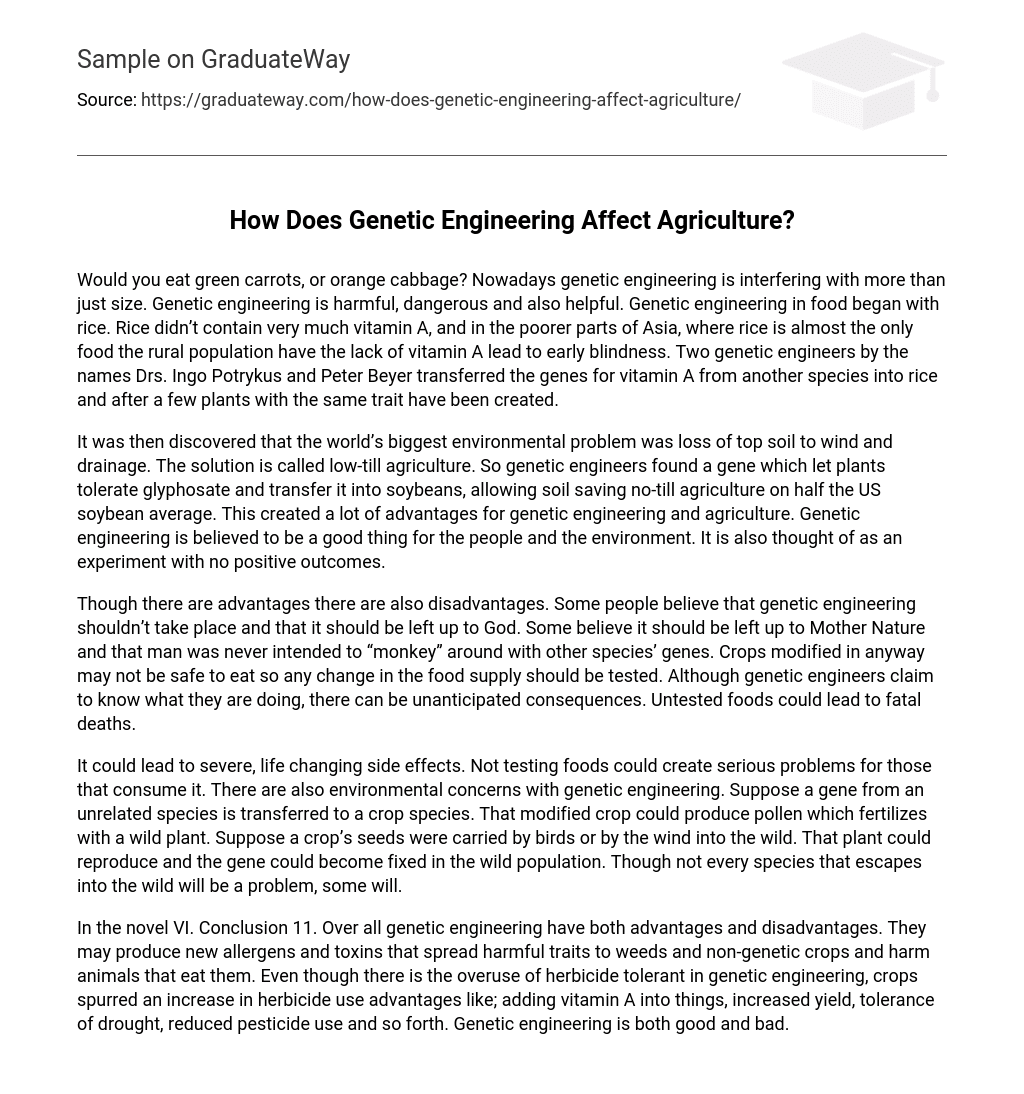Would you eat green carrots, or orange cabbage? Nowadays genetic engineering is interfering with more than just size. Genetic engineering is harmful, dangerous and also helpful. Genetic engineering in food began with rice. Rice didn’t contain very much vitamin A, and in the poorer parts of Asia, where rice is almost the only food the rural population have the lack of vitamin A lead to early blindness. Two genetic engineers by the names Drs. Ingo Potrykus and Peter Beyer transferred the genes for vitamin A from another species into rice and after a few plants with the same trait have been created.
It was then discovered that the world’s biggest environmental problem was loss of top soil to wind and drainage. The solution is called low-till agriculture. So genetic engineers found a gene which let plants tolerate glyphosate and transfer it into soybeans, allowing soil saving no-till agriculture on half the US soybean average. This created a lot of advantages for genetic engineering and agriculture. Genetic engineering is believed to be a good thing for the people and the environment. It is also thought of as an experiment with no positive outcomes.
Though there are advantages there are also disadvantages. Some people believe that genetic engineering shouldn’t take place and that it should be left up to God. Some believe it should be left up to Mother Nature and that man was never intended to “monkey” around with other species’ genes. Crops modified in anyway may not be safe to eat so any change in the food supply should be tested. Although genetic engineers claim to know what they are doing, there can be unanticipated consequences. Untested foods could lead to fatal deaths.
It could lead to severe, life changing side effects. Not testing foods could create serious problems for those that consume it. There are also environmental concerns with genetic engineering. Suppose a gene from an unrelated species is transferred to a crop species. That modified crop could produce pollen which fertilizes with a wild plant. Suppose a crop’s seeds were carried by birds or by the wind into the wild. That plant could reproduce and the gene could become fixed in the wild population. Though not every species that escapes into the wild will be a problem, some will.
Conclusion
Over all genetic engineering have both advantages and disadvantages. They may produce new allergens and toxins that spread harmful traits to weeds and non-genetic crops and harm animals that eat them. Even though there is the overuse of herbicide tolerant in genetic engineering, crops spurred an increase in herbicide use advantages like; adding vitamin A into things, increased yield, tolerance of drought, reduced pesticide use and so forth. Genetic engineering is both good and bad.





